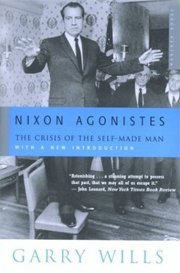Alfresco agonistes


(The word agonistes refers to struggle, and the agony of struggle, but you may be more familiar with it in the title of the great historian Garry Wills' first book, Nixon Agonistes. Its subtitle is worth noting -- "the crisis of the self-made man.")
Alfresco's agonistes, which is common with all enterprise open source companies, is maintaining open source credibility while bringing in enough cash to keep the doors open.
It's a tightrope walk, and the balance between its free "labs" version and paid "enterprise" versions is sometimes criticized.
Galoppini writes that Asay's recent conversion from support for the GPL to BSD licensing may be part of this struggle. While it's likely too late to switch from the GPL, he suggests a move toward GPLv3 with attribution -- GPLv3 the SugarCRM way -- may be in order. (Matt may take that as a compliment, given his views on SugarCRM's former CEO John Roberts.)
Alfresco founder John Newton is upfront about things on his own blog. Part of his solution is to make links to proprietary systems, like Oracle, which Alfresco writes, available only to paid customers:
We started with Alfresco 3 to put extensions to proprietary databases such as Oracle or SQL Server into the enterprise release only, while extensions to MySQL, Ingres and other open source databases were available in open source. Now with the Alfresco Enterprise 3.1, we will be adding system monitoring capabilities and easy clustering administration that will only be available as part of the enterprise version.
Galoppini also writes of another possibility, a low-level "starter" version that is open source and whose availability is time-limited.
"The question is not anymore if your community wants to trade time to save money or to trade money to save time, but more likely how much money they are able to invest, and for what," he writes.
It should be noted here that Wills was not unsympathetic to his subject, either, although the Nixon people did not see things that way. Partly for this attitude toward criticism the Nixon era ended badly. May Alfresco have a happier ending.